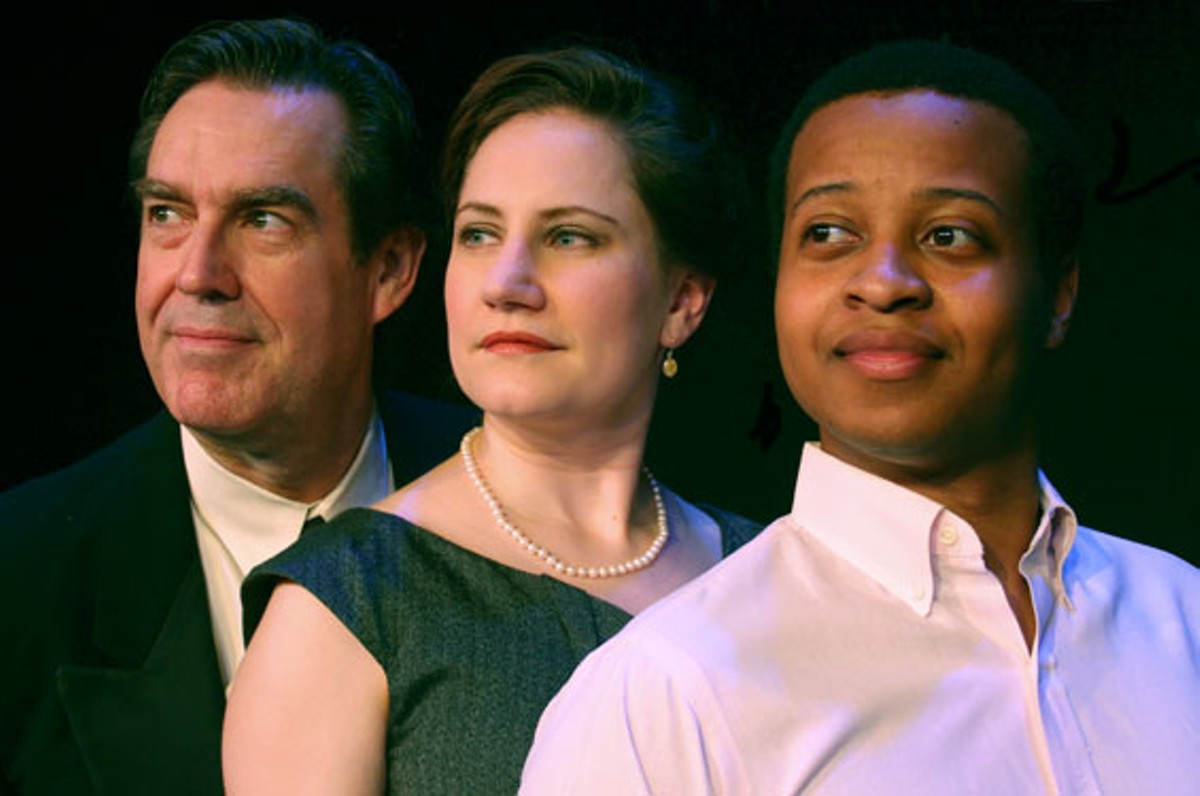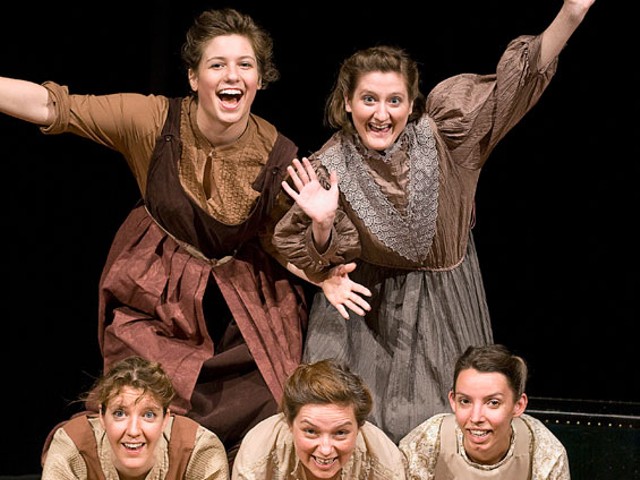Although Six Degrees of Separation, John Guare's 1990 comedy of manners, is performed without intermission, the story is neatly framed in the mode of a three-act (or at least a three-episode) play. Episode one chronicles the sting: A young black hustler named Paul (Greg Fenner) appears at the posh Fifth Avenue home of Flanders Kittredge (Gerry Love) and his socialite wife Ouisa (Sarajane Alverson). Bleeding from a knife wound, the breathless Paul explains that he has been mugged in Central Park. Because he attends Harvard with the Kittredge kids, he has come to their parents for refuge and aid (and anything else he can glom).
Episode two is a detective story that probes the method behind Paul's failed sting. Who set up this ruse? How was the imposter so well informed about his intended prey? It's not until episode three, which looks beyond the art of the con, that Six Degrees of Separation becomes a play of enduring merit, for this is when a minor tremor of a scam triggers a seismic aftershock in Ouisa's soul.
Even when she was being bamboozled, Ouisa was captivated by Paul's seeming intelligence. (Nor did it hurt that he claimed to be the son of movie icon Sidney Poitier.) But later, after Paul has been exposed as a phony, Ouisa experiences an unexpected, even troubling, kinship with her predator. Fraudulence she understands. Perhaps she even intuits that her husband and Paul are cut from the same cloth, for both are gamblers at heart. Flan relies on his personal charm to navigate the high-stakes world of buying and selling pricey art; the equally charming Paul is a high-risk con man.
Now, almost imperceptibly, Six Degrees ratchets up the stakes: In the final minutes, Guare backpedals his satiric skewering of the rich long enough to reveal poignancy behind the empty glitter. We witness an existential need for communication at both ends of Paul's scam. He yearns for a friend; Ouisa yearns to revisit the Sistine Chapel, where she can gaze upon Michelangelo's depiction of the hand of God — one piece of art that cannot be reduced to a mere commodity.
The title of the play, which is being staged at Stray Dog Theatre by Gary F. Bell, alludes to the appealing (if unsupportable) premise that each of us is no more than six introductions away from anyone else. The evening builds to an emotional monologue in which Oiusa discovers that she is "bound to everyone on this planet by a trail of six people." Alas, her discovery is essentially worthless: The Kittredges have no need of new acquaintances; they are still strangers to each other. Ouisa can barely claim knowledge of her own children. (Note the four empty picture frames that hang above the stage.)
One might question Guare's choice to have so much of his dialogue delivered full-front, directly at the audience, a manner that discourages emotional investment by the viewer. Yet one wants to be sympathetic to Six Degrees, because it has much on its mind. Perhaps the script, whose impetus was an actual incident as reported in the New York Times, lacks the scandalous immediacy it enjoyed in 1990. At age 23, the satire exudes the dated feel of an artificial comedy; Six Degrees portrays upper-class Manhattan at the end of the 20th century as evocatively as a Sheridan comedy crystallizes late 18th-century London.
But some things have not changed over the past quarter-century. Guare saves one last curve for evening's end. Even as Ouisa is marveling over how close we all are to Eskimos in Alaska and natives in rainforests — or even to Sidney Poitier himself — Paul is swallowed up by the bureaucracy of the American legal system. Perhaps Guare is suggesting that not even the hand of God could penetrate that tangled and ignoble morass.






